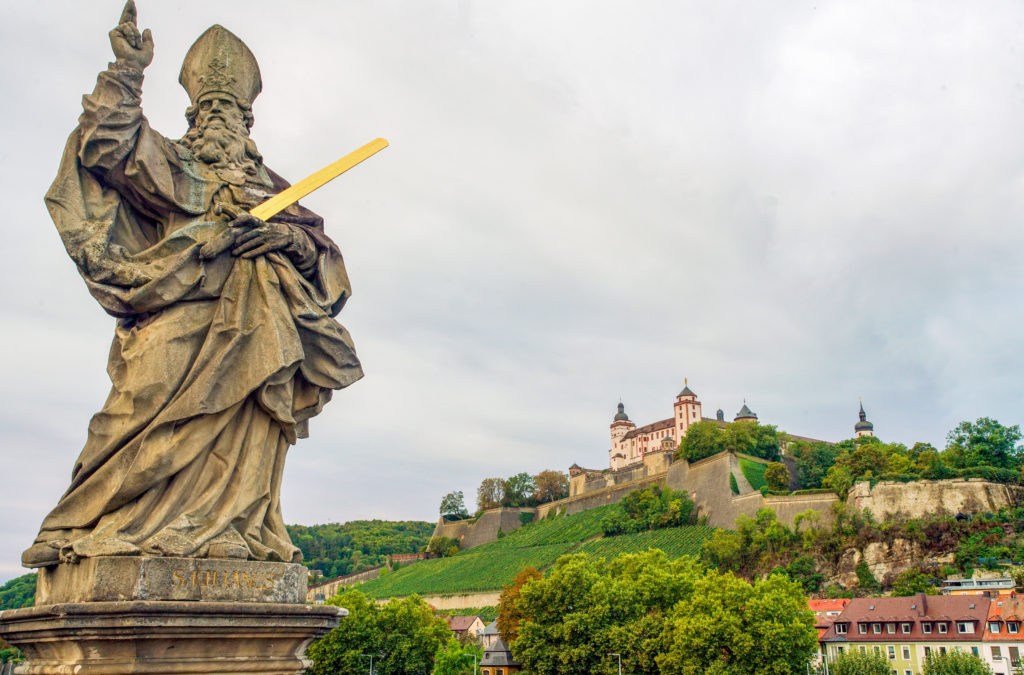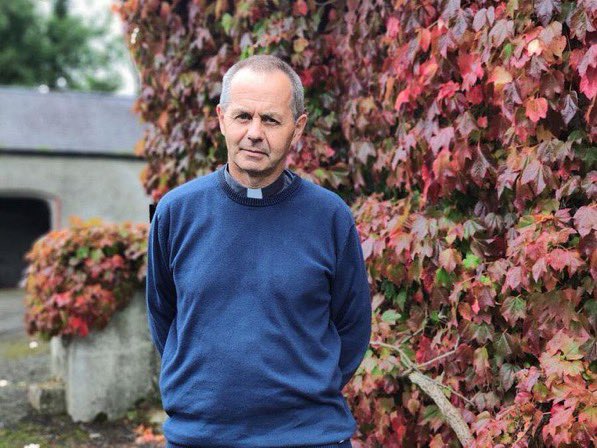THE relics of an Irish-born saint who was martyred in Germany in 689AD will be brought to Ireland for the first time this year.
Born in Cloughbally, Co. Cavan in 640AD, Saint Kilian is believed to have received his religious training at a monastery in Rosscarbery, Co. Cork.
He later founded his own monastery in Kenmare, Co. Kerry, where he trained his fellow monks and laid plans for a mass pilgrimage from Ireland.
From Kilmakilloge harbour, Kilian and his twelve companions sailed out on a mission to spread the word on Christianity.
 A statue of St Kilian on the Old Main Bridge in Würzburg, Germany
A statue of St Kilian on the Old Main Bridge in Würzburg, GermanyTheir journey brought them to Germany and to the province of Franconia in particular, where they set up their headquarters at Würzburg in the year 686AD.
But it was while spreading the word in Germany that Kilian and two of his companions, Colman and Totnan, were assassinated in 689AD.
The relics of St Kilian, St Totnan and St Kolonat (Colman), which consist of three skulls, inlaid with precious stones, have remained in Germany ever since, where their resting place is on the altar at Würzburg Cathedral.
But this October they will make their way to Ireland for the first time ever, where they will go on display in County Cavan.
A number of religious ceremonies are due to take place, both in Saint Kilian’s Church in Mullagh, and in the Cathedral of Saints Patrick and Felim in Cavan Town, while the relics are in Ireland.
 Bishop of Kilmore Diocese, Martin Hayes has welcomed the visit
Bishop of Kilmore Diocese, Martin Hayes has welcomed the visitBishop Martin Hayes, who is Bishop of the Kilmore Diocese in Cavan, has welcomed the visit, which has been described as a “major religious and civic event” by the Irish Catholic Bishop’s Conference.
“We anticipate – with great excitement in the parish of Mullagh and Kilmore Diocese – receiving the relics of Saint Kilian who left Mullagh fourteen centuries ago,” he said.
“Along with people from across the diocese, I look forward to welcoming Bishop Franz Jung of the Diocese of Wurzburg in October, who will lead a pilgrimage from Germany of parishioners, Church and civic delegates.”
He added: “This is a significant visit that will consolidate the faith and friendship between us which has grown over the years.
“The visit will also be a wonderful opportunity for prayer and celebration in Mullagh and throughout our diocese.
“The planning is the culmination of more than ten years of work to secure the necessary permission to bring these sacred relics overseas for the first time, and it represents a historic moment for the Christian faithful in both Germany and Ireland.”
Further details of the impending visit are due to be announced this week.

